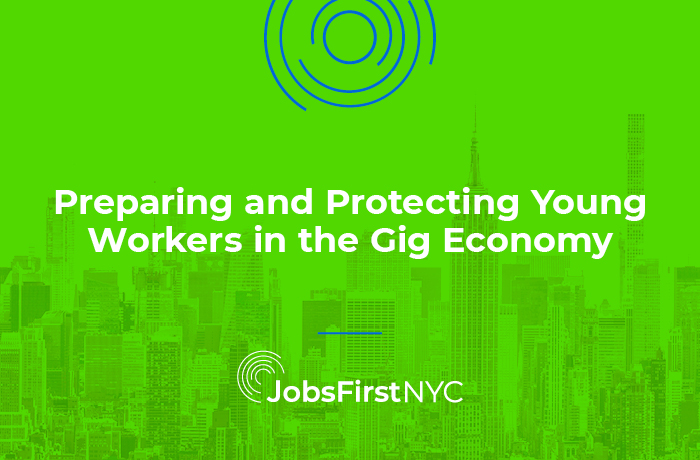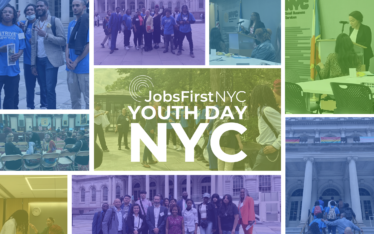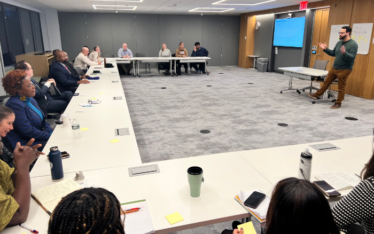This month, New York City Council Member Brad Lander (District 29, Brooklyn) released a report on New York City’s gig economy. The report detailed the financial and legal challenges many workers often face when engaging with this new economy, as well as the ways the City could improve working and living conditions for New Yorkers who choose to perform gig work. Among these were recommendations for short, medium, and long term policy solutions for solving common gig economy problems such as wage theft, worker misclassification, and obstacles to organizing and receiving work benefits.
This summer, JobsFirstNYC presented Adapting to the Future of Work: Creating the New York City Future Talent Pipeline, a two day event that convened employers, philanthropy and practitioners on the first day and young adults themselves on the second. Across both days, speakers presented on the gig economy. On the first day, Angie Kamath, Executive Director of Social Ventures and Innovation at Per Scholas moderated a conversation between Sarah Leberstein, Labor Policy Advisor for the Labor Policy and Standards Division of the NYC Department of Consumer Affairs (former Senior Staff Attorney at the National Employment Law Project) and Chris Schildt, Senior Associate at PolicyLink titled The On-Demand Economy and the Implications for Young Jobseekers and Workers. Chris and Sarah presented data around the on-demand economy and its implications for young jobseekers and workers. On the second day, Shayna Strom, Senior Fellow at The Century Foundation, offered her perspective on worker voice and the necessity for young workers to be protected by legislation when engaging in gig-work.
The discussions detailed the scale and breadth of gig (also called on-demand, project-based, contingent, etc.) work; busted some common myths about the financial opportunities of the gig economy; and detailed the disparate, negative impact that many of the gig economy’s challenges (including those detailed in Council Member Lander’s report) can have on younger workers and workers of color. Chris and Sarah offered the workforce practitioners, policymakers, employers, and advocates in the audience some tangible recommendations on how they could help young people navigate the gig economy while working to improve the nature of gig work. These recommendations included:
- Train young job seekers to “ask questions about employee status, pay, benefits and unreimbursed costs” and “organize with other workers – on-line, off-line, within a company, across an industry”;
- “Share information about companies’ practices and workers’ legal rights” and “advocate for improvements, to end unfair policies, for a reimagined workplace”; and
- “Choose high-road employers to work with” and “identify career pathways that leverage skills: entrepreneurship, co-ops” when designing workforce development programs and policies for young workers.
The gig economy has the potential to present New Yorkers with a myriad of options to earn some extra cash or even make a living combining projects on a flexible schedule with room for creativity and entrepreneurship. However, because of a lack of policies and practices to prepare and protect workers and hold employers accountable, many workers are being exploited within the gig economy – from wage theft to lack of benefits to no legal protections against workplace harassment and discrimination. As technology advances and New York City’s gig economy continues to grow and expand, JobsFirstNYC encourages practitioners, educators, lawmakers, philanthropy, and other advocates to support policies that end worker exploitation and misclassification, while engaging in practices that will best prepare young workers to take advantage of all of our City’s employment and economic opportunities.
Learn more about the gig economy here:
- National Employment Law Project, Rebecca Smith & Sarah Leberstein, “Rights on Demand: Ensuring Workplace Standards and Worker Security in the On-Demand Economy”
- The Century Foundation, Shayna Strom, “Protecting Workers in a Patchwork Economy”





